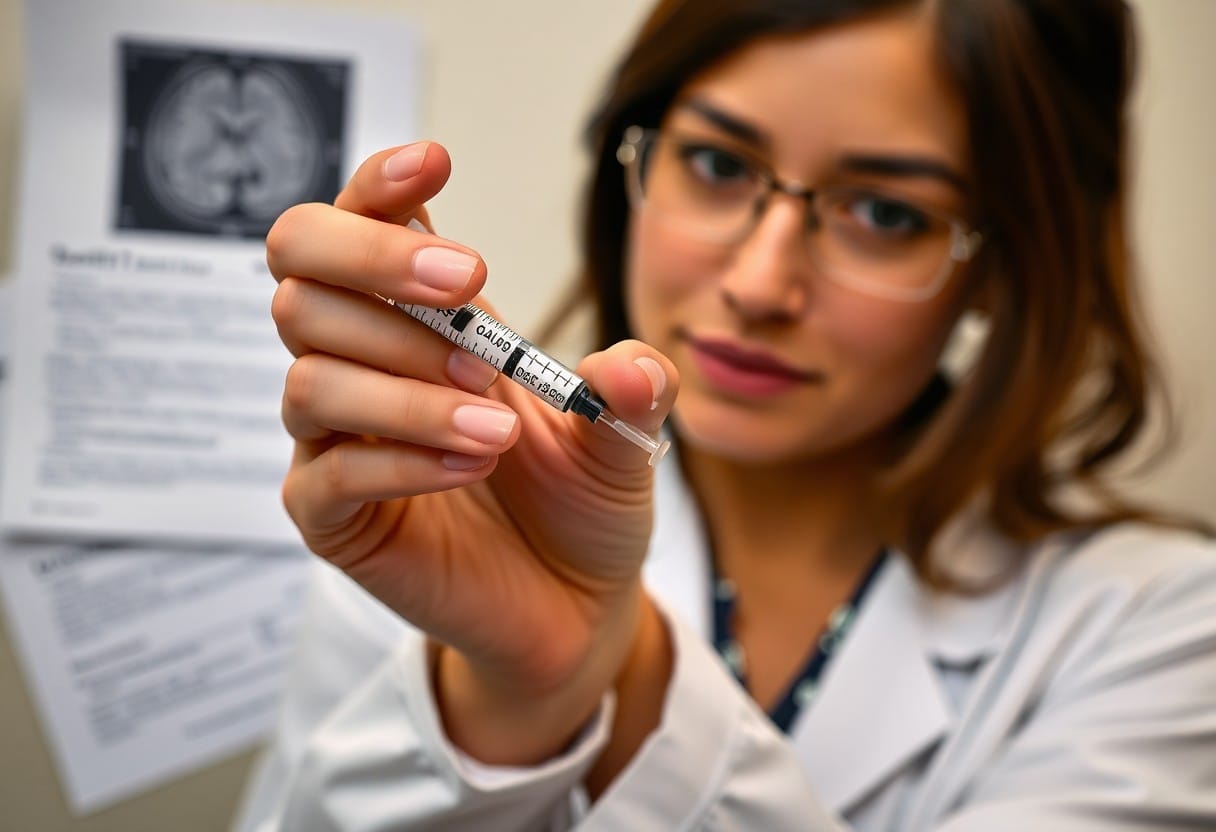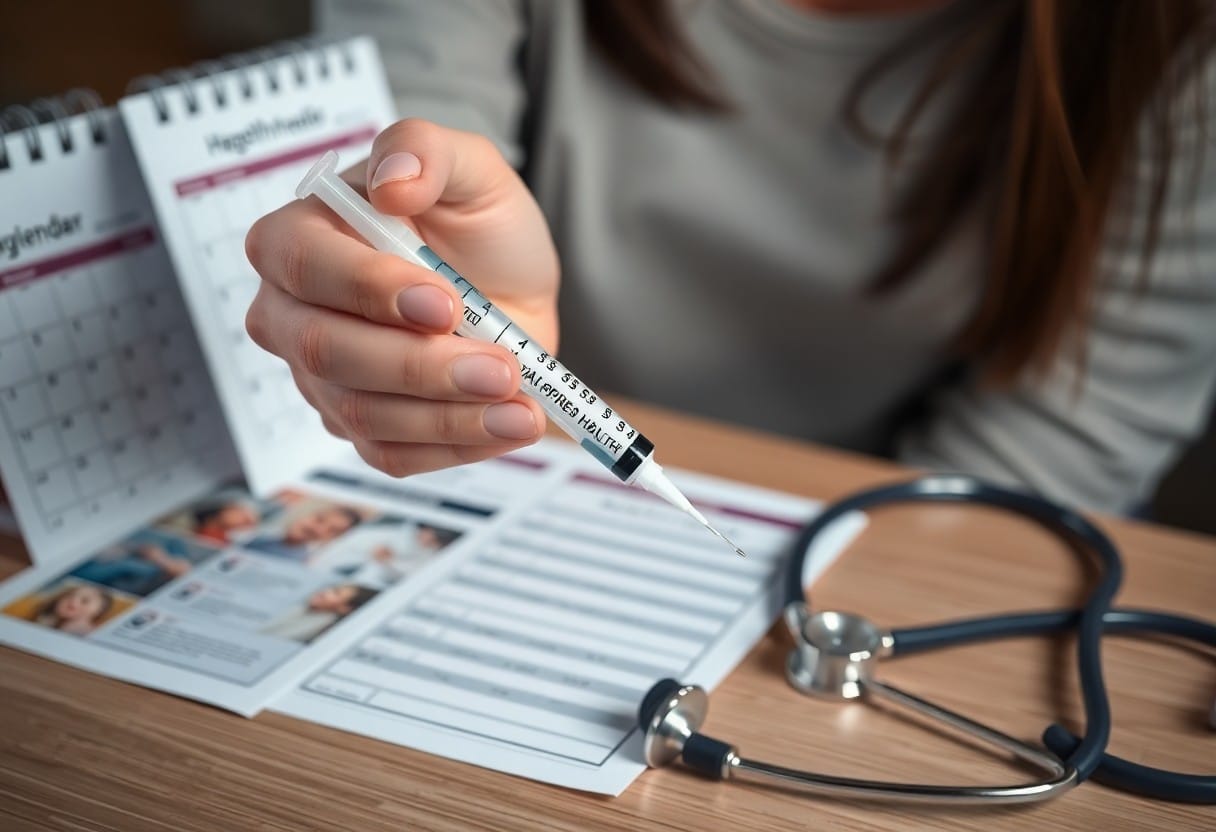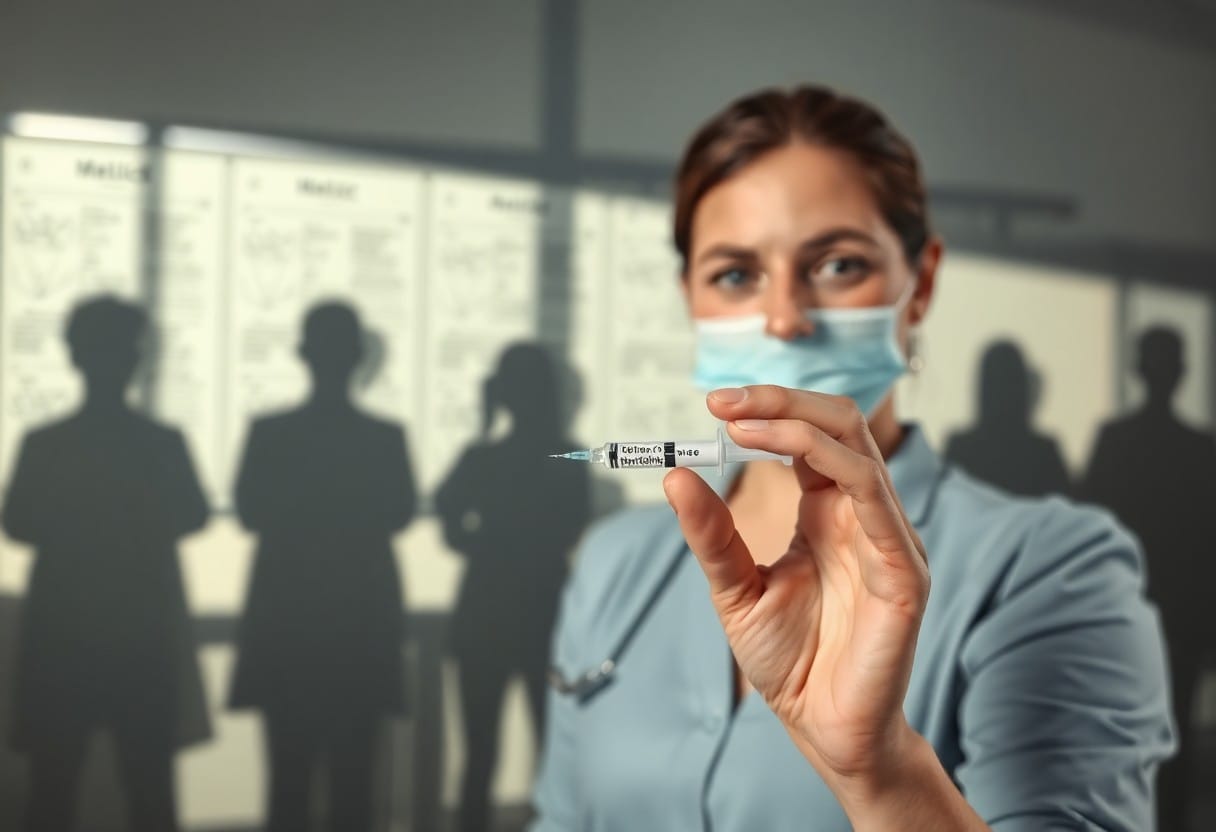Most people experience minimal side effects after receiving a vaccination, but if you encounter a shoulder injury such as pain, weakness, or limited range of motion, it’s important to know the steps to take. First, assess your symptoms and consult a healthcare provider to determine the severity of your injury. You may benefit from rest, ice therapy, and over-the-counter pain relief. By following professional advice and taking proper care, you can support your recovery and return to normal activities safely.

Understanding Shoulder Injuries Related to Vaccination
The relationship between vaccinations and shoulder injuries is becoming increasingly recognized in the medical community. These injuries can occur due to how the vaccine is administered or due to an individual’s pre-existing conditions. It’s important to understand that such injuries, while uncommon, can cause discomfort and may require attention if symptoms persist.
Types of Shoulder Injuries
Injuries related to vaccinations can manifest in various ways, including:
| Subdeltoid bursitis | Inflammation of the bursa in the shoulder |
| Rotator cuff injury | Tearing or strain of shoulder muscles/tendons |
| Shoulder pain syndrome | Generalized shoulder discomfort after vaccination |
| Vaccine-related shoulder injury | Specific term for complications from vaccinations |
| Neuropathy | Nerve damage or irritation due to injection |
Knowing the types of injuries can help you recognize potential problems and seek appropriate care.
Symptoms and Signs of Injury
Before seeking help for a shoulder injury, it’s vital to be aware of various symptoms. Common signs include pain during movement, swelling, limited range of motion, and tenderness around the injection site.
Injuries related to vaccinations can present with varied symptoms, including intense pain that may radiate down your arm, swelling at the injection site, and reduced mobility in your shoulder. It’s important to note that if you experience persistent discomfort or your symptoms worsen, you should consult a healthcare provider. Prompt attention to (especially severe) signs can prevent potential complications from becoming serious.
Immediate Steps to Take After a Shoulder Injury
Now that you have experienced a shoulder injury following vaccination, it’s important to take appropriate steps to address the situation promptly. The initial response can greatly influence your recovery. Begin by assessing your condition and applying some basic first aid measures that can help alleviate discomfort and prevent further complications.
First Aid Measures
At the onset of your shoulder pain, apply ice wrapped in a cloth to the affected area for 15-20 minutes every hour. This can help reduce swelling and relieve pain. Use a support like a sling if necessary, and keep your arm elevated to help minimize discomfort. Over-the-counter pain relief medication can also be beneficial in managing your symptoms.
When to Seek Medical Attention
Between persistent pain, swelling, and reduced mobility, you may need to consider when it is time to see a healthcare professional. If symptoms last more than a few days or worsen, it’s advisable to consult a doctor for a diagnostic evaluation.
Measures that indicate the necessity of medical attention include severe pain that doesn’t respond to over-the-counter treatment, significant swelling, visible deformities, or an inability to move your shoulder or arm. Additionally, if you experience numbness, weakness, or signs of an allergic reaction, such as difficulty breathing or swelling, you should seek immediate care as these could signify a more serious issue. Recognizing these signs early can lead to more effective treatment and a faster recovery.
Treatment Options for Shoulder Injuries
Some effective treatment options for shoulder injuries after a vaccination may include various approaches tailored to your specific condition. It’s vital to assess your symptoms and determine whether self-care measures will suffice or if professional medical intervention is necessary.
Home Remedies and Self-Care
Across the board, simple measures can help alleviate discomfort from shoulder injuries. Resting the shoulder, applying ice to reduce swelling, and taking over-the-counter pain relievers can provide significant relief. Gentle stretching and strengthening exercises might also help restore mobility as the pain subsides.
Professional Medical Treatments
Along with self-care, for persistent or severe shoulder injuries, you may need professional medical treatment. Healthcare providers might recommend physical therapy, where specialized exercises can aid in your recovery, or corticosteroid injections to combat inflammation and pain. In more severe cases, surgical options might be considered to repair damage.
Also, your healthcare provider can help delineate the best path for your recovery. If your injury persists or worsens, seeking formal assessment is key. Therapists can develop a tailored recovery plan that addresses your unique situation, improving function and minimizing discomfort. Always report any increasing symptoms to ensure appropriate care is provided, as unmanaged pain or stiffness can lead to further complications.
Rehabilitation and Recovery
Unlike other types of injuries, shoulder injuries following vaccination typically require a well-structured approach to rehabilitation and recovery. It’s important to follow a regimen that gradually increases your shoulder’s mobility and strength, allowing you to return to normal activities without pain. Consult with a healthcare professional to develop a personalized recovery plan tailored to your specific needs.
Physical Therapy Exercises
One effective way to facilitate healing is through physical therapy exercises. These exercises can help restore your shoulder’s range of motion and strength. A trained physical therapist can guide you through tailored movements aimed at gently stretching and strengthening the shoulder muscles that may have tightened or weakened after your injury.
Timeline for Recovery
One common timeline for recovery from a shoulder injury after vaccination can vary based on the severity of the injury. Generally, you might expect a gradual improvement over a period of weeks to months. Light activities could be resumed within days, while full recovery might take up to several months, depending on your dedicated approach to rehabilitation.
A typical recovery timeline generally starts with rest and gentle movements in the first week. After this period, you may begin light exercises, progressing over 2 to 6 weeks. It’s vital to listen to your body and avoid pushing through pain. Full strength and mobility typically return around the 3 to 6 month mark, depending on your adherence to rehabilitation and individual response to treatment. If your symptoms persist or worsen during this time, consult your healthcare provider for a thorough evaluation.
Preventing Future Shoulder Injuries
Your approach to vaccination can significantly impact your shoulder health. To prevent future injuries, ensure that you inform your healthcare provider of any previous shoulder issues. Additionally, discuss your medical history and any concerns before vaccination, so appropriate measures can be taken to minimize discomfort and risks.
Proper Vaccination Technique
With the right vaccination technique, the risk of shoulder injury can be reduced. Healthcare professionals should utilize appropriate needle length and gauge based on your body type and vaccination site, while ensuring the injection is administered in the correct location within the deltoid muscle.
Tips for Reducing Risk
At your next vaccination appointment, you can take several steps to minimize the risk of shoulder injury:
- Consult your healthcare provider about your specific health conditions.
- Request a thorough examination of your shoulder anatomy before the procedure.
- Ensure you are seated comfortably to avoid muscle tension.
- Practice gentle shoulder mobility exercises prior to your appointment.
This can help you stay proactive about your shoulder health.
Even small adjustments in your vaccination approach can have a significant impact on your shoulder health. By prioritizing communication with your healthcare provider and practicing effective strategies, you can effectively limit the risk of future injuries. It’s also beneficial to engage in regular strength training for your shoulder muscles and maintain proper posture during daily activities. This will contribute to your overall strength and resilience. Ultimately, taking these precautions can ensure a safer vaccination experience and a healthier shoulder moving forward.
Legal Considerations
Many individuals are often unaware of their legal options following a shoulder injury resulting from a vaccination. It is vital to know that you may have the right to seek compensation for any medical expenses, lost wages, and pain and suffering. Consulting with a legal expert who specializes in vaccine-related injuries can provide you with the guidance necessary to navigate the complexities of the law, ensuring your rights are protected and that you receive any benefits or compensation available to you.
Reporting Vaccine Injuries
Injuries related to vaccinations can sometimes go unreported, leaving you without the resources you may need for recovery. It’s important to promptly inform your healthcare provider about your shoulder injury, as this documentation can be significant if you decide to pursue compensation. Additionally, consider reporting your injury to the Vaccine Adverse Event Reporting System (VAERS) to help monitor the safety of vaccines and contribute to the larger public health data.
Understanding Your Rights
By knowing your rights, you can effectively advocate for yourself following a vaccination-related injury. This includes understanding the compensation options offered through the National Vaccine Injury Compensation Program (VICP) and any other potential legal avenues. It’s not uncommon for individuals to feel overwhelmed or uncertain in these situations, but being informed will empower you to make decisions that best support your recovery.
At the same time, ensure that you fully grasp the National Vaccine Injury Compensation Program’s framework, which provides financial support for individuals injured by vaccines. The program lays out specific eligibility criteria, deadlines, and the types of compensation available, including for medical expenses and lost wages. If you believe your shoulder injury is related to a vaccination, don’t hesitate to explore your options; seeking the advice of an attorney specializing in this area can further clarify your legal standing and assist you in the claims process.
Conclusion
On the whole, if you suffer a shoulder injury after a vaccination, it’s important to take it seriously. Start by applying ice to reduce swelling and consult a healthcare professional if the pain persists or worsens. Adhering to proper rest and recovery practices is important for your healing. Additionally, keep a record of your symptoms and communicate openly with your healthcare provider about any concerns you may have. By taking these steps, you can facilitate your recovery and ensure better overall outcomes for your health.





















